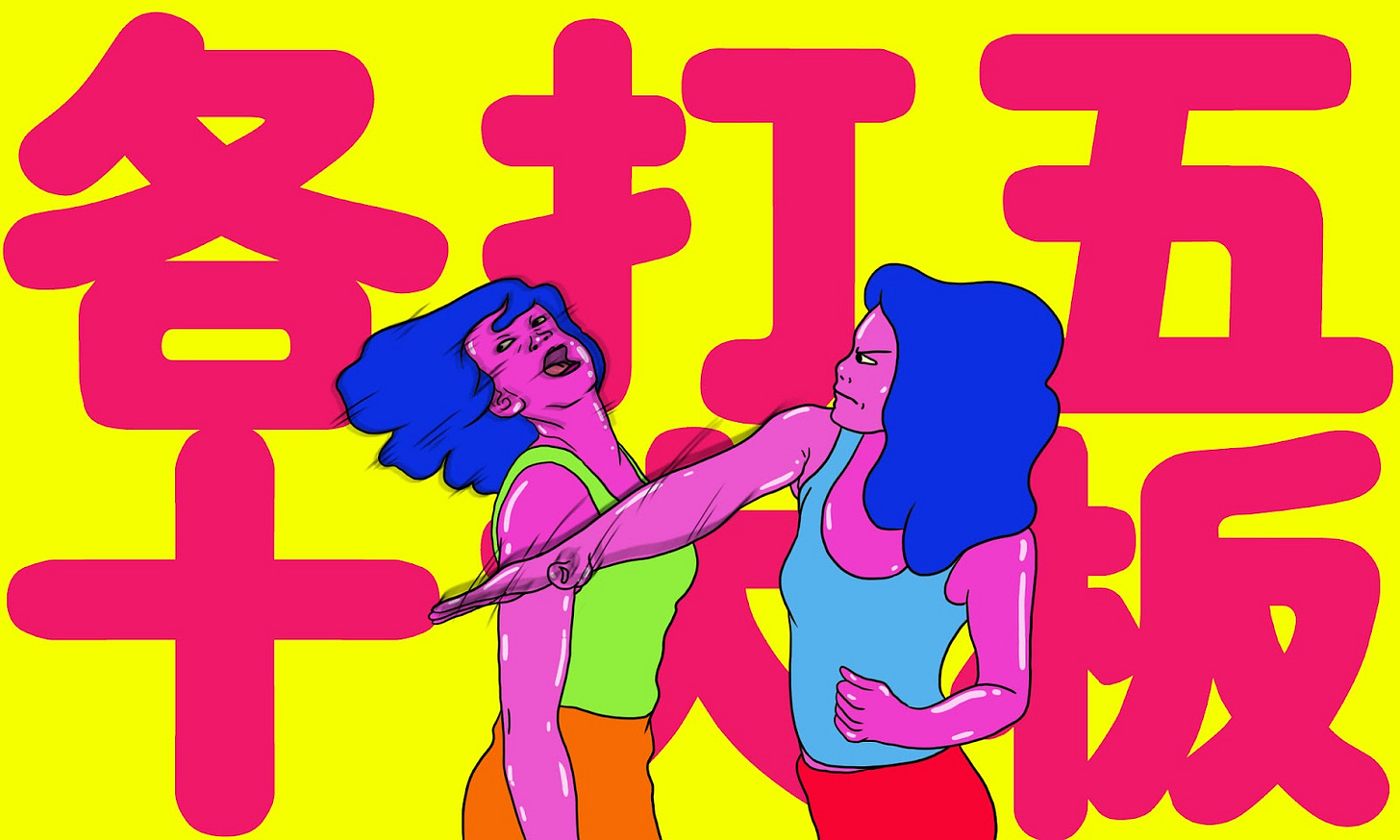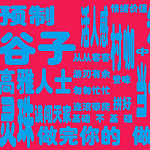Welcome to RealTime Mandarin—a multimedia resource to immerse you in the latest Chinese language trends, inspire you to practice and improve your Mandarin every week, and empower you to communicate with confidence.
Subscribe now to get the next issue straight to your inbox!
An argument between two female passengers on a train caused widespread attention online.
The “high-speed rail slapping incident” (高铁掌掴事件 gāo tiě zhǎng guó shì jiàn), happened on a train travelling between Meishan and Chengdu on 2 May.
It started with one woman, whose surname is Wáng, turning to the seats behind her asking the two kids sitting there to stop kicking the back of her seat. She asked the mother, named Yáng, to get control over them. The mother and her family responded aggressively, first verbally, and then it escalated from there.
起因是,杨女士的孩子吵闹、多次撞前座椅背,王女士与后座孩子家长杨女士交涉时起了争执,由于杨女士同行人首先辱骂王女士,冲突升级,双方对骂 [4]
Then the mother slapped the other woman in the face, who slapped her back once, and then again a few seconds later.
Wang (who was hit first) posted the video of the incident on social media. Yang’s family asked her to remove it but she refused. So the family reported Wang to the local police. Wang was then summoned to the police station that evening.
The police verdict was “mutual assault” (互殴 hù ōu), with both women found equally guilty. Wang was fined RMB 200 yuan, and the other woman (who hit first) was fined RMB 500.
Wang, who had refused to reconcile with the other woman, was later interviewed in Southern People Weekly, saying:
I always feel that if those who hit others first because the other party is outnumbered can be forgiven after crying, showing their remorse and apologising, then it means anyone who slaps someone else in the future can cry and be forgiven without any consequences. I can't convince myself of such a result.
我始终觉得仗着人多最先恶意出手打人者,如果哭一哭后悔道歉就能和解的话,那以后谁打一巴掌都可以哭哭和解没啥后果,这样的结果我说服不了我自己
There has been widespread discussion on the media about the verdict:
The controversy mainly focused on "Why can't I fight back after being hit?" "Why is Ms. Wang's fighting back not an act of self-defence?" Some people also shared similar experiences they had encountered. [4]
争议主要聚焦于“被打后为什么不能还手?”“王女士的还手为什么不算正当防卫?”也有一些人在王女士的评论区分享自己遭遇过的类似经历 [4]
A number of high-profile legal experts also waded in disagreeing with the police decision.
The judgement of the police has a demonstrative effect. When the case, where the obvious victim fights back, is carelessly determined as mutual assault, it hurts not just the party involved, but also the thousands of people who yearn for, uphold and support justice.
警方的评判,带有示范效应,对明显受害一方的还手行为,随随便便互殴结案,伤的可不是一个当事人,而是千千万向往正义、崇尚正义、支持正义的人。[2]
There’s also much debate around how the children behaved, and that the mother’s focus should have been on keeping control of her kids.
So, that’s what we learn about this week!
Favourite Five
1. 掌掴 zhǎng guó
slap
高铁上被掌掴女孩坚决不和解的话题,上了热搜 - The topic of the woman who was slapped on the high-speed rail but unwilling to reconcile with the other woman became a hot search term on social media. [1]
2. 互殴 hù ōu
mutual assault
最后,警方判定为互殴,打人的家长罚款500元,还手的女孩也罚款200元 - In the end, the police ruled that it was a mutual assault. The parent who hit the other person was fined 500 yuan, and the woman who fought back was also fined 200 yuan. [1]
Related: 斗殴 dòu ōu - a brawl
3. 熊孩子 xióng hái zi
bear child; spoilt child
几个熊孩子玩游戏时,多次脚踢女孩的椅背 - A couple of spoilt children kicked the back of the woman's chair many times while playing. [1]
Related: 熊家长 xióng jiā zhǎng - spoilt parents (also 熊父母 xióng fù mǔ)
4. 和稀泥 huò xī ní
mixing water with mud; try to mediate differences at the sacrifice of principle
警察各打五十大板的做法,被人批为“和稀泥执法” - The practice of the police of punishing both parties has been criticized as trying to mediate differences at the sacrifice of principle. [1]
Note: This is originally a dialect word. Other ways to say it include: 合稀泥 hé xī ní and 抹稀泥 mǒ xī ní. But the dialect version seems to be used more.
5. 各打五十大板 gè dǎ wǔ shí dà bǎn
hit both sides with 50 lashes; punish the innocent and the guilty equally
在另一条微博评论区,警察各大五十大板的做法,被人批为“和稀泥执法” - In another Weibo comment section, people call the police's approach to punishing the innocent and the guilty in the same way “law enforcement through mediating differences at the sacrifice of principle" [1]
More: We explore the background of this phrase more in The China Project’s Phrase of the Week.
Consuming the Conversation
Useful words
6. 桩 zhuāng
counting word for a case of law
一桩发生在高铁的小型纠纷引发全国关注 - A small dispute on the high-speed rail draws national attention. [4]
Note: Other counting words for cases are 起 or 件. 桩 and 起 have negative connotations, implying something unpleasant, while 件 is neutral.
7. 仗义 zhàng yì
willing to defend others in the name of justice, righteous
车上一名东北大哥仗义出手,帮女孩教育了孩子的父母 - A man from Northeast China who was in the carriage helped the girl educate the child's parents. [1]
8. 仗着 zhàng zhe
take advantage of someone
我始终觉得仗着人多,先恶意出手打人者,如果哭一哭后悔道歉就能和解的话,那以后谁打一巴掌都可以哭哭和解没啥后果 - I always feel that if those who hit others first because the other party is outnumbered can be forgiven after crying, showing their remorse and apologising, then it means anyone who slaps someone else in the future can cry and be forgiven without any consequences.[3]
9. 传唤 chuán huàn
summon (by an authority, usually the court)
女子被传唤到成都一派出所,接受调查询问 - The woman was summoned to a police station in Chengdu for investigation and questioning. [1]
Related: 复议 fù yì - review a case
10. 懦弱 nuò ruò
cowardly
法治精神引导的方向,到底是“理性到懦弱”,还是“感性到凌然” - Should the rule of law guide us to show "logical cowardliness", or "emotional righteousness"? [2]
Three-character phrases
11. 活靶子 huó bǎ zi
a living target
无数网友支持的罗翔,却成了法律界同行的活靶子 - Luo Xiang, supported by countless netizens, has become a living target for his colleagues in the legal profession. [2]
12. 干瞪眼 gān dèng yǎn
look on in despair















